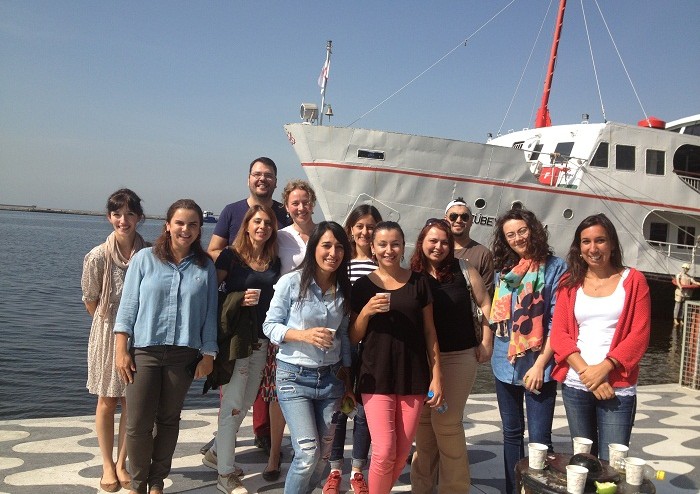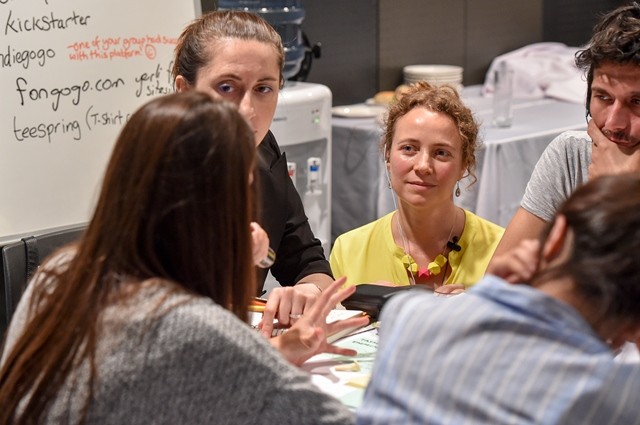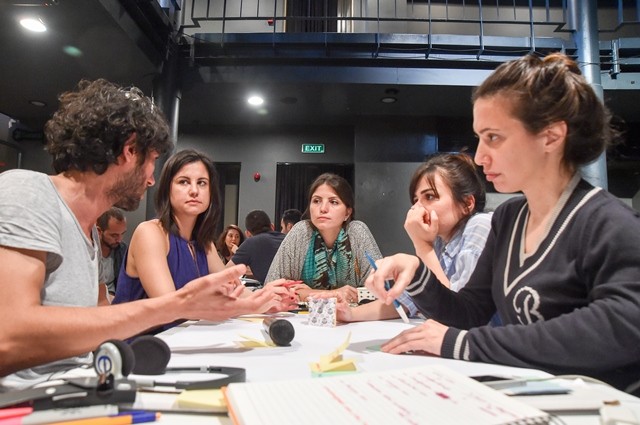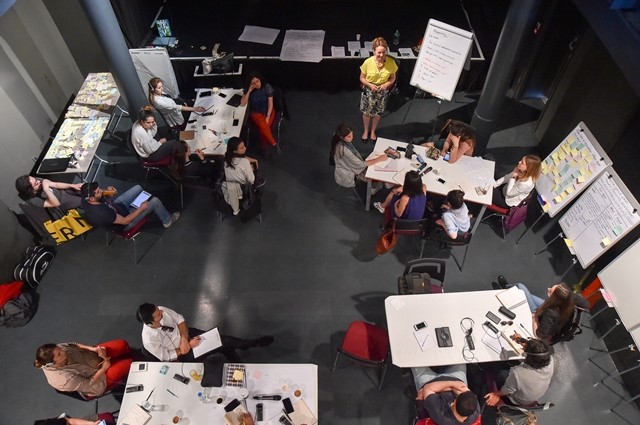
Philiy (fifth from left) and her latest training cohort in Izmir.
I grew up in an all-male household (four brothers and one father) and I was constantly surrounded by masculine energy. My father was a self-made entrepreneur; my oldest brother ran his own business and my younger brothers were always thinking of creative ways to increase their pocket money. What I found fascinating about all of this was that they never seemed to doubt their ability to succeed. If they failed, they approached the problem from a different angle or ditched the idea completely and tried another one. It was exhausting!
My mother and grandmother had also been self-made entrepreneurs, running their businesses from the kitchen or by the living room fire. They did it quietly; head down, steadily making progress until they achieved their goal. A very different experience to watching my brothers and father set on their own projects. Years later, after leaving school and university, I set up on my own as a freelance photographer. What they hadn’t told me was how scared I would feel putting myself out there constantly, whilst facing rejections weekly.

Philiy mid-session
Entrepreneurship takes guts and confidence in order to succeed. My work with the British Council takes me into the heart of start-up communities across the globe. What I constantly see in the male participants is a confidence that they will succeed, and the women in the room either not wanting to stand up and speak about their project, or a deep-rooted fear that they will fail.
Men often share the same fears that the women in the room have, and cover it up by asking questions afterwards, rather than to the whole room. I have found this interesting, as it shows that the men and women are actually on a similar playing field in terms of knowledge at the beginning, but the men portray more confidence. It is the lack of confidence in their ability that often holds women back.
I have found that the most important thing an entrepreneur needs to work on before they start their business isn’t a grasp of figures, or how to gain clients - although these are crucial to having a long-term sustainable business – it’s confidence building. I founded Creative Women International in 2014 to tackle issues affecting women working in the creative industries, to create a support network and to offer them training, including on confidence building.

It took me years to feel assured enough to walk into a male dominated newspaper company and place my work on their table. Over the years I have learnt tricks and ways of improving confidence. Confidence is at the heart of entrepreneurship. You need to feel confident to share your ideas, to ask for funding and investment or even to talk to customers. It is a skill that needs to be nurtured and supported, not only for women but men starting out in business too.
It has been shown that a third of the female population in the UK would start a business if it weren’t for the fear of failure. This is something we need to talk about and share ways of dealing with, to see failure as part of a positive, learning curve. More companies and creatives should talk about the failures or the things that didn’t go as well as they thought they would. Only by sharing that information can we learn from each other.

A recent RBS report shows that by boosting female entrepreneurship we could deliver an extra £60bn to the UK economy; imagine what that that could do worldwide! Globally, more women than men live in poverty. Entrepreneurship improves not just women’s quality of life but their children’s too.
I watched my own mother and grandmother create their businesses from the kitchen table, and it inspired me to believe that anything is possible if you work hard enough. Together we can create a worldwide community of female entrepreneurs; it’s this idea which inspires me daily.
Philiy Irish-Page has over fourteen years’ experience of working in the creative industries, is a highly experienced trainer/mentor for a range of creative start-ups and lectures in Social Media Marketing at Bath Spa University.